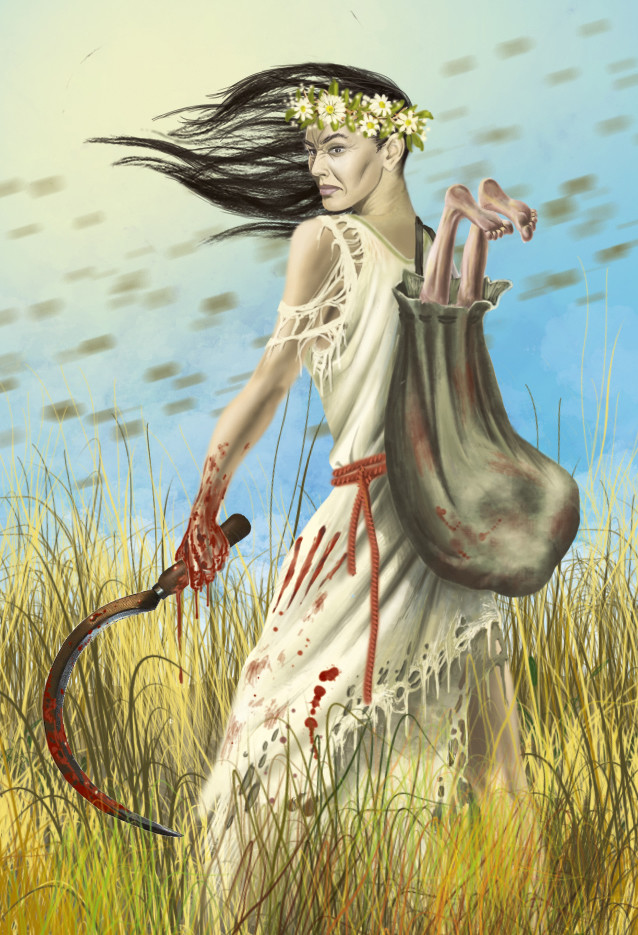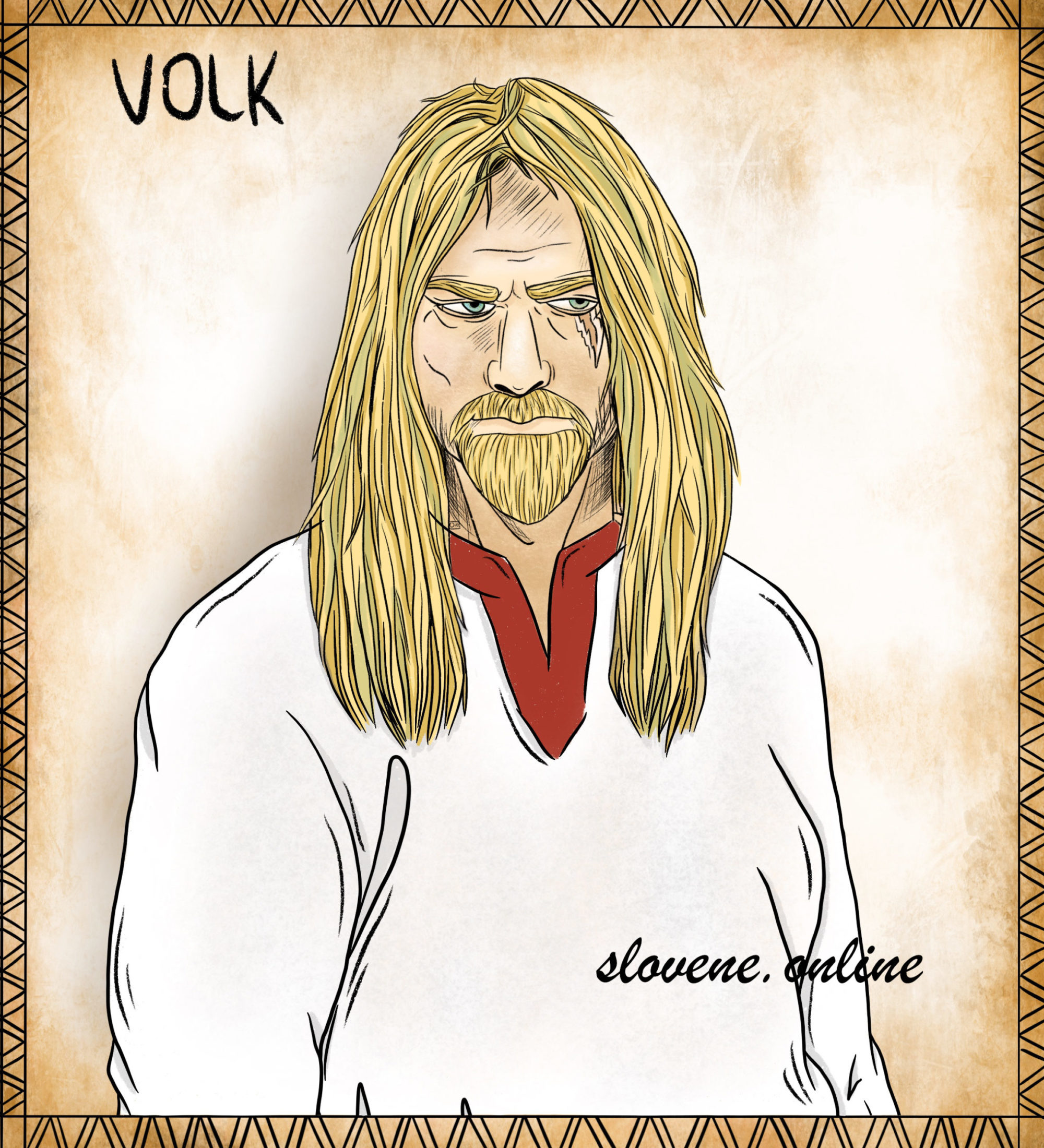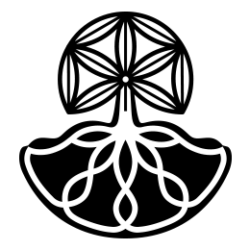In Czechia, Poludnitsa punished mothers who violated the ban on working within six weeks after the childbirth. In later beliefs, Poludnitsa became a character used by adults to frighten children so that they did not go to the fields alone, did not go outside at noon, and went to bed on time. Russians used to say: “Do not go to the rye field, Poludnitsa will give you a burn”. Polish: “Nie chodź do grochu, bo cię przypołudnica weźmie” [Do not go to the field of peas, or Poludnitsa will take you].
ꏍ
To be safe from Poludnitsa, one needs to follow certain rules at noon. The Russians and Western Slavs at this time were forbidden to work or sleep in the field and near its edge. In Arkhangelsk region, people kept the window shutters closed, did not leave the house and did not let the children out, in a fear that Poludnitsa would tickle a person to death or take the child away.
ꏍ
In the Russian North, it was forbidden to swim and wash clothes in the period from 6 to 19 July in order to avoid the attack of Poludnitsa. People there also believed that if Poludnitsa appeared near someone – that person needed to lie down, so that she would not harm them. Lusatians believed that Poludnitsa, upon meeting a person, asked him/her about how to grow and process flax – and if that person is unable to give an answer, then she chopped his/her head off.
ꏍ
Well, do you know how to grow and process flax ?! 😉 😉 😉
ꏍ
More interesting facts can be found in: “Slavic Antiquities” – encyclopedic dictionary in 5 volumes by Institute for Slavic Studies of the Russian Academy of Sciences.
Artist: Dawid Urbaniak https://urbaniakdawid.artstation.com
ꏍ

